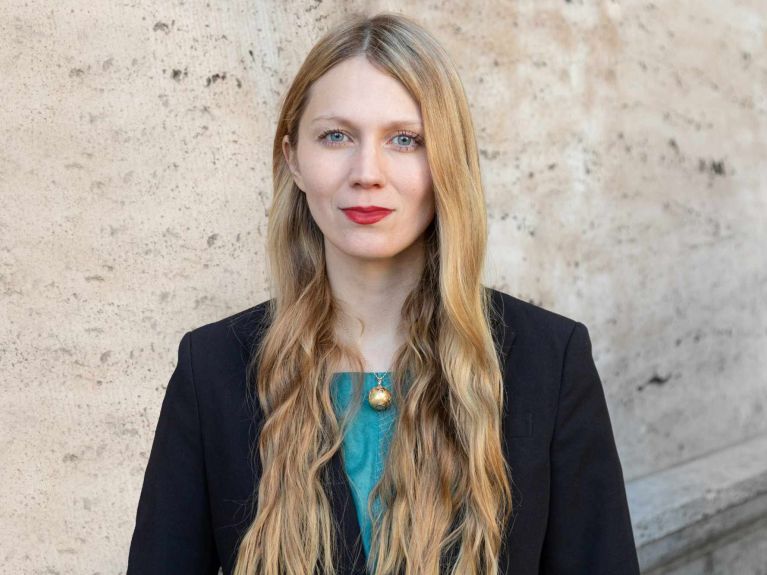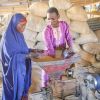“A question of political will”
Kira Vinke studies the grave consequences of climate change for people all over the world and calls for swift action to be taken.

Kira Vinke gives a voice to people who have been robbed of their homelands by drought, flooding or storm. In her book “Sturmnomaden” (i.e. Storm Nomads), the scientist describes how the climate crisis can destroy livelihoods, and what needs to happen now. Head of the Center for Climate and Foreign Policy at the German Council on Foreign Relations (DGAP), Vinke is among other things the co-chair of the Advisory Board to the German Federal Government on Civilian Crisis Prevention and Peacebuilding, and a member of the Advisory Board of Germany’s Federal Academy for Security Policy.
Dr Vinke, how is climate change affecting the security of humankind today, and how will it do so in the future?
Climate change has an impact on food security and on the supply of water, and can therefore destroy human livelihoods. Furthermore, drought in a region can for example also lead to violent conflicts due to conflicting interests. Climate change thus makes the outbreak of violence more likely. People in many regions around the world are already being forced to migrate by extreme weather events or conflicts.
You call people who are forced by climate change to leave their home countries “storm nomads”. What do you mean by this?
For me, this term refers on the one hand to people who have been driven from their homelands, for example by flooding. At the same time, they are fighting for their own survival, and for their families’ future. The term “storm nomads” is intended to focus on the dignity of these people who are not only the victims of serious climate change, but who are also battling with all their might against natural forces.
People should take centre stage in the discussions about the climate crisis. After all, this crisis is not merely an environmental problem to which we have to somehow adapt. We therefore need even more people to tell us about their experiences. They include those who lost their homes due to the disastrous flooding in the Ahr Valley in Germany in the summer of 2021. We should listen more to them.
What role can climate diplomacy play in addressing the consequences of global climate change?
I believe that it is important for example for the topic of migration to be firmly anchored in the German government’s new climate diplomacy strategy. It must be about preserving people’s livelihoods and thereby reducing security risks. Foreign policy must place climate-related migration on the international agenda with a view to protecting people worldwide.
This is a human-made problem – which is why we humans can also solve it.
What makes you feel optimistic despite all the prophecies of doom about the climate crisis?
There are still a lot of strings we can pull. Above all, we can reduce emissions. This is a human-made problem – which is why we humans can also solve it. Especially industrialised countries like Germany have the best possible conditions for rapidly cutting emissions. It is a question of the political and societal will. Given the grave consequences of climate change, there will inevitably be a growing realisation of our need to act quickly now.
You would like to receive regular information about Germany? Subscribe here:


